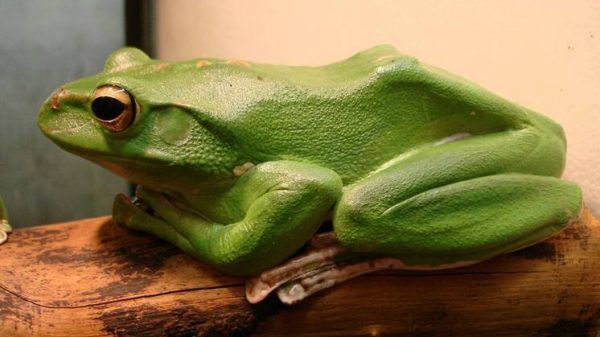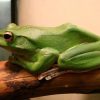
In Dharamsala in northern India, where the residence of the Dalai Lama is located, on his initiative and with his participation, the First International Scientific Conference “Animal Consciousness” was held in May 2023, bringing together leading experts from more than ten countries. And in May of this year, the Second International Forum dedicated to the consciousness of animals, as well as artificial intelligence, gathered in Kathmandu. About modern research and hypotheses in this area, about the need for an ethical attitude towards any sentient beings, about the possibility of developing consciousness in artificial intelligence, about the mysteries of post-mortem meditation and reincarnation, about the role of the Dalai Lama and cooperation with Buddhist consciousness researchers, about the new science of consciousness and about future meetings of scientists — the scientific organizer of the conferences, director of the Institute for Advanced Brain Research at Moscow State University named after M.V., spoke in an exclusive interview. Lomonosov, academician of the Russian Academy of Sciences, neurophysiologist Konstantin Anokhin. Interviewed by Olga Lipich.
THEY LOOK IN THE MIRROR, COUNT AND FEEL PAIN
— Konstantin Vladimirovich, what was the newest, most impressive, surprising thing that was said at the first conference about animal consciousness?
< strong>— That fish are able to recognize themselves in the mirror.
— Research on self-recognition of fish by Japanese professor Masanori Koda is convincing?
— I would say that his data is very unusual and makes you think deeply.
— And snails, who have the rudiments of emotions and excellent memory?
— Scientists have known for a long time that snails are capable of learning and remembering many things well, including from the many years of work of Academician Balaban (head of the laboratory of cellular neurobiology of learning at the Institute of Higher Nervous Activity and Neurophysiology of the Russian Academy of Sciences). But it is very important to draw attention to his data on the ability of snails to self-stimulate. Self-stimulation is a behavior by which an animal activates its own neurons through an electrode implanted in the nervous system. The presence of such behavior in mollusks, discovered by Academician Balaban, indicates that these creatures are capable of experiencing pleasure. And this is one of the basic ingredients of subjective experience, a fundamental property of consciousness.
– According to the results of research by foreign professors Lars Chittka and Martin Giurfa, bees amaze with the presence of a “language”, the ability to “count to five”, and learn — can this change stereotypical ideas about insects?
— The “language” of bees, as well as their ability to develop conditioned reflexes, have also been known for a long time. But the fact that these insects can learn to use tools and learn this by watching other bees, and also play and enjoy it, is a fundamentally new discovery. Some time ago, such abilities were considered the prerogative of only vertebrates, which have a very complex nervous system. And now we have data on these abilities in bees and bumblebees. This is very important new data that changes our understanding of the world of insects.
— What is so remarkable about animals like hydras, why did you invite a specialist to give a report about them?
— This line of research in the laboratory of Rafael Yuste (a famous Spanish-American neurobiologist) seems extremely important to me. With the help of the latest methods of neurobiology, it allows us to see how all the cells of the nervous system of this animal work during behavior. This gives us the opportunity to look into the mechanisms of behavior of a simple organism from the inside — and at the same time, amazing things are revealed. For example, for each type of behavior, the hydra has its own ensembles of neurons — its own functional systems, and they do not intersect. For neuroscience and the problem of the evolution of consciousness, this is a very important discovery. It raises the question: does the hydra exist at all as a single creature, or are there many small autonomous «creatures» in it, and each of them does something different?
So too is the question of where we will ultimately have to draw the line between consciousness and unconsciousness, sentient and non-sentient forms of life. It is no coincidence that I invited participants working with plants, as well as hydras — one of the simplest creatures with a nervous system. Because plants and hydras are candidates for pruning. To understand where the border is, you need to see what is on the other side of it. We must look carefully: will we already make a division here, or will we cut off the sentient and the non-sentient, say, in bees or frogs?
— That is, Is the selection of speakers related to presenting the diversity of the animal world and determining possible cutoff boundaries?
— Yes, but also with the presentation of different approaches to what consciousness is, how it is widespread in animal world. Today it is extremely important to discuss and evaluate these approaches in relation to different animal species.
— What are the global goals of animal consciousness research and conferences on this topic?
— The study of animal consciousness may be key to a fundamental understanding of consciousness in general. And then this topic no longer becomes local — what about the inner world of our cats and dogs or whether crayfish experience pain when they are thrown into boiling water — but what consciousness is in general, including for us humans. Is there something common and special that permeates our entire animal world, and which we have not yet reached? And can a new, expanded view of the animal world provide clues and help us understand our own consciousness? This is the first major goal.
Second major topic. If the animal world has properties that are very close to us, and if we understand consciousness as the ability to feel, experience, suffer, experience pleasure, then questions arise: what is the special place of man in this entire sentient world and how to relate this to the rest of the animal world, if Do they also suffer and are aware?
Once this kind of revolution, when man was removed from the pedestal of an exceptional being and found himself part of a large living world, had already occurred — it was the Darwinian revolution. But then it seemed that in the field of consciousness, as it was understood in those days, man was a unique and only being. Indeed, at the conference we heard stories about how dogs used to be dissected without anesthesia because they were considered unconscious. If it is proven that animals really have consciousness, it turns out that they also have subjective feelings, experiences of pain, jealousy, joy and other emotions, this will be the second shock for humanity — we will descend from the next step of our exclusivity. This will radically change our understanding of the living world. And this is also the significance of the conference.
And third. If animals are conscious and suffer, this requires changes in the policy towards them. Perhaps these will be changes similar to those that have occurred in human history with the understanding that slaves or serfs are the same people, that women have the same rights as men. If we understand that animals have the same feelings as we do, our ethics in interacting with them will change.
— Today we can already unequivocally say that animals have consciousness?
— Today it would be premature to say that scientists have come together and declared: all animals have consciousness. That the moth that you crushed in your closet experienced the same suffering as if a piano had fallen on you. Scientists don't know this yet. Scientists argue, as we saw at the conference. There are very big disagreements even on such a seemingly simple aspect of subjective feelings and experiences as pain. Some scientists say that fish have a feeling of pain and it is impossible to cut live tuna into pieces, while others write articles justifying “why fish do not feel pain.” This situation makes it necessary to study and discuss these issues.
— How do you evaluate the results of the conference as a whole?
“I consider it a great success that outstanding scientists from different fields managed to come together to begin discussing issues of animal consciousness. In my opinion, it's a good start. Although there are also difficult places where very heated discussions begin and where we stall. But nevertheless, this is the only way to change the situation. And I hope this conference will continue. The main thing is to start the process, to move the global state of affairs on this problem.
HYPERNETWORK THEORY OF THE BRAIN
— What do you personally think: which animals have consciousness or at least signs of consciousness, subjective sensations, emotions, and which do not?
— I have a theory — the hypernetwork theory of the brain — which predicts when consciousness appears in a living being. The theory says that those species of animals that have three necessary components can have consciousness.
The first is the nervous system, and a fairly deep one at that. Deep means that it has, like an artificial neural network, deep layers of neurons where very diverse signals from the external environment, from the senses, converge and unite. Thanks to this, the neurons of these deep layers are capable, through many stages of preliminary processing, of receiving very integrated information that can be assessed in terms of very abstract categories — feelings, objects, places, events — making very subtle distinctions.
The second criterion is the presence of functional systems in the organism that have the ability to generate new behavior. When such an organism encounters a problem, it begins to look for a solution, going through different options. In this sense, a fly that hits the glass for the tenth and hundredth time does not make any attempts to fly around it — perhaps it does not have much chance of developing consciousness.
— Why?
– Because only in an organism in which a tree of functional systems grows, giving off new and new branches, at their intersections in the deep layers of the nervous network, neurons of individual experience will begin to form, which make us creatures with a unique inner world.
— What is the third condition for the emergence of consciousness?
— Third, cells in such a network must have long-term memory mechanisms. This will allow them to accumulate new experience in the same way that genetic memory accumulated the results of mutations and selection in evolution. Each next step along this path that a child, or a crow, or a little octopus takes, added to the million such steps before and after him, creates an individual with unique subjective sensations, experiences and his experiences.
< strong>— So which animal fits these criteria today?
— If you look at it this way, then mammals are certainly candidates for possessing consciousness. Perhaps all vertebrates, because they already have a fairly complex central nervous system. These primarily include birds, but perhaps also amphibians, reptiles, and fish. In addition, apparently some of the molluscs and arthropods. Among the mollusks, apparently, these are octopuses and cuttlefish. Of the arthropods, for example, crabs.
This does not mean that other animals do not have consciousness, but with regard to those named we have the most arguments in favor.
— Plants are definitely not suitable? But at the conference, Spanish professor Paco Calvo spoke about the “reasonable plant”…
— According to the theoretical premises that I spoke about, plants are not. They do not have the necessary substrate in order to accumulate subjective experience.
— What scientific evidence exists today for consciousness or its rudiments in animals?
— They lie in two areas. The first is behavioral abilities. Many animals are capable of behaving in ways similar to us in situations that require the participation of consciousness from humans. At the same time, some researchers say that external behavior cannot serve as a criterion for the presence of consciousness, because a zombie or robot will also behave this way. But if we decide that behavior can serve as such a criterion, then, according to the principle of Occam’s razor (not to create unnecessary entities), we should accept that these animals have consciousness.
The approach of one of the conference participants, American professor Michael Tai, was based precisely on this. If a duck looks like a duck, quacks like a duck, and acts like a duck, then it's probably a duck. If an animal with a nervous system shows all the signs of pain, then most likely it experiences the same sensations as we do. Although, there are scientists who categorically do not accept this approach.
There is also a second approach, which was developed in the school of the theory of functional systems by Vyacheslav Borisovich Shvyrkov (1939-1994, an outstanding Russian neurophysiologist and psychologist, creator of the scientific school of “systemic psychophysiology” ). It assumes that we can examine subjective sensations objectively.
— The Dalai Lama asked this question: is objective research of the subjective world possible?
— Yes, they are possible. The approach of the theory of functional systems assumes that we can objectively explore and understand the subjective world of an animal if we look into its brain during behavior and observe how neurons behave that demonstrate the animal’s attitude to the world around it, its values, and its interests. By the presence of specialized neuron activity, we can understand what the animal sees and distinguishes in the world. For example, that an animal in an experimental chamber distinguishes that this is one pedal with which it gets food, and this is another, that this is one feeder, and this is another.
— You called your theory “hypernetwork theory of the brain” » – why the brain and what is its role in consciousness?
— Because the brain is the most important thing, lack of understanding of which hinders our understanding of the mind, consciousness, and intellect today. We think we understand that the brain is an organ similar to the liver, the kidneys, that it is a grayish soft tissue consisting of billions of interconnected cells. But based on the amount of research and theoretical premises, I am convinced that the brain is something completely different. And science has yet to understand this.
— What is the brain, according to your theory, what is its essence?
— The brain is not just a neural network that can be grown in a Petri dish, but a neural hypernetwork that is formed on its basis, gradually developing in the body during individual learning. This hypernet carries our “I” with all its experiences, experiences, relationships with the outside world. A neural hypernetwork has its own special structure, which is still difficult to study even today, because each node of such a network does not lie at some point in the brain, but is a distributed team — an “assembly” of neurons in different areas working together.
But when we understand the laws of the formation of this hypernetwork and the principles of its structure, then from this we will be able to deduce what the mind is, and what consciousness is, and what the soul is, as it was understood throughout the history of mankind. We can give scientific definitions to all this.
— There is no exact definition of what consciousness and intelligence are in science yet?
— Science cannot determine what something is at the beginning of the study of this “something”. Initially, science should only have a working definition that allows us to move in the right direction and not go astray. And only at the end of this path will there be an understanding that will lead to a scientific definition of the phenomenon being studied. It is impossible to agree on what Mars looks like from the inside, to define Martian caves until we visit there in one way or another.
DALAI LAMA, THE SUBJECTIVE WORLD AND REINCARNATION
— Why does science need the Dalai now? Lama, cooperation with him? Which views of His Holiness do you agree with?
— First. I have great respect for the Dalai Lama as a great personality and a brilliant mind. A mind that, it seems to me, is making a revolution on a civilizational scale — in the relations between two historical cultures, two civilizations. This is a bold and very deep step.
Second. I share his methodological guidelines regarding the study of consciousness as the central essence of human life — that it should combine the approaches of objective research and research of the subjective world, that is, personal experiences. And if one half of the world (Western) developed, improving and training some methods (objective), and the other (Eastern) — others (subjective), then today they need to meet each other halfway. And we need specially created conditions in which they must interpenetrate and enrich each other.
Third. I share the fundamental position of Buddhism about the most important transition between the sentient and non-sentient, rational and unreasonable, experiencing and non-experiencing, conscious and unconscious world. And in Western thinking such a fundamental boundary was drawn between living and nonliving.
This does not mean that there is only one fundamental boundary — either one or the other. I believe that there are two borders, that there have been two critical transitions in history. The first is the transition from inanimate matter to living matter. And the second — from non-sensing matter — to conscious beings. This transition needs to be paid special attention, and Buddhism is already doing this, and the West must still learn to attach special importance to it.
This is what I share. Then there are things that I treat with attention, but critically.
— What exactly causes skepticism and why?
— These are various ideas of Buddhism, which from a scientific point of view are still It is not clear what they are based on, what are the facts behind them that could be felt by the rest of the world.
The first is the idea that all animals, without exception, have consciousness. The scientist must ask: what are the grounds for such a statement? I ask this question and do not receive a reasonable answer from Buddhists. There is, of course, the answer that in Buddhism it is not customary to ask the question “what reasons.” But he doesn't satisfy me.
The second is various unusual phenomena that are spoken of in Buddhism. Rebirth, reincarnation… Here, as a scientist, I adhere to the position of sound scientific skepticism. Until I know something for sure, I will continue to have a preference for the simpler explanation. For example, that behind this there is a certain normative component characteristic of all religions. As they say to children: don’t do this and that, otherwise you will end up there and there, Baba Yaga will come and take you away…
— That is, you do not share the attitude of Buddhism, what if behave badly, then you can be reborn in the world of animals or hungry ghosts… And the teaching on reincarnation of great teachers?
— So far, science is not able to evaluate this using its own methods. Is the 14th Dalai Lama the reincarnation of the 13th Dalai Lama? How can we understand that the tests carried out by the expedition to find the 14th Dalai Lama, showing the little boy objects that he considered his own, were carried out strictly and impartially, as required by science, and are a sufficient basis for the claim of reincarnation? Can we establish such objective facts in other cases? How strong and strong is the evidence base behind these ideas to say that we should take them seriously enough to change all of our current scientific beliefs? I'm not ready for this yet.
That doesn't mean I don't look at this area closely. I’m looking, but with a caveat: do such cases really exist now? And how to check them? Let scientists then check this together with Buddhists. The world is now big and connections in it are very fast — you can find and quickly attract a group of strict expert scientists who will investigate the declared cases of rebirth. Let's open this up for inspections.
— Do you mean the stories of the Dalai Lama about children with whom he talked and who remember their past lives, “past” parents, are brought to places associated with them, recognize rooms, guess objects there, for example, in a closed box — glasses?
— I am not at all inclined to consider His Holiness’s stories insincere. But I and other scientists need to see this. See and explore in detail, not hear in stories. And it is advisable to see it on a sufficient number of cases, due to which random things and coincidences are excluded. And only then am I ready to push the stool out from under my feet and hang in a noose that suffocates all my previous ideas as a scientist about how the world works and the laws of causality in it.
TUKDAM AND SCIENTIST MONKS
— In Buddhism there is a phenomenon of tukdam — posthumous meditation of some practicing monks. Buddhists themselves explain it by preserving the subtlest level of consciousness (clear light mind), which prevents the deceased body from decomposing while it remains in it, and then this subtlest consciousness passes into a new body. What do you think about this and about the research into altered states of consciousness and cases of tukdam, begun by agreement with the Dalai Lama, academician Svyatoslav Medvedev?
— This is a very promising research topic . I believe that through systematic Buddhist practices and training, special states of consciousness are truly achieved, that this is reality.
The question is what kind of reality this is, how to explain it. So, how was it explained two and a half thousand years ago, when there was no science in our modern understanding? Or is it perhaps something completely different? Maybe when we dissolve in this state, we do not reach the highest level, but, on the contrary, the most basic, animal one? It can be very positive and important, but in this state we seem to lose our personality in order to descend to the earliest stages of the evolution of consciousness…
— What else is interaction with Buddhists can give to modern science, and science can give to believers, why did you invite a number of Buddhist monk-scientists to the conference?
— The evolution of Western civilization was focused on man's relationship with the outside world, his knowledge and conquest. And Buddhism has two and a half thousand years of concentration on the inner world of man — issues of feelings, sensations, emotions, happiness and suffering. At the same time, Buddhism has a firm belief that the animal world has consciousness in its fundamental understanding as subjective experiences.
The first question that arises is: if Buddhism knows the world of consciousness so deeply, then there must probably be some reason why it thinks so. Is there anything we can learn from the Buddhist experience? The mere belief of Buddhists, even for thousands of years, that all animals have consciousness, but plants do not, cannot serve as sufficient support for scientists. We need factual foundations and grounds for research. We are trying to find them.
The second question concerns ethics. Buddhist civilization grew up and lives not just with the understanding that animals have consciousness, but also with a corresponding ethical attitude towards the animal world as a world of conscious beings. But Western civilization has yet to develop such an ethical practice.
And the third aspect. This is truly a contact between two cultures that look at the world differently and can begin to move towards each other.
ARTIFICIAL INTELLIGENCE
— On the sidelines of the conference, a lot was said about the rapid development of artificial intelligence — can it have consciousness, feeling, and lay claim to the role of the next stage in the evolution of consciousness, taken beyond the boundaries of the cranium? After all, now AI, for example, the GPT chatbot, is endowed with a colossal ability to learn through words, languages, communication and self-development? Will we in the future live in a hybrid society, partly composed of machines with consciousness and rights?
— Niels Bohr ironically said that it is very difficult to predict, especially the future. I will not take on this challenge regarding artificial intelligence. But I understand and share the attention to this issue. Something important is happening in this area, we need to try to understand it.
— Does artificial intelligence have signs of consciousness or not, according to your theory?
— None of the signs that I mentioned are strictly biological. The deep web can consist of anything. A functional system is the elements of a holistic system that work together so that the system — the agent — can achieve some results in the surrounding world. Long-term memory can be built not on organic elements, but, for example, on memristors — storage elements used in artificial neuromorphic systems. In this sense, the theory is quite universal. And alien beings that have consciousness must meet the same criteria of the theory, otherwise consciousness would not arise in them. And the consciousness of artificial intelligence must also meet these requirements. But I’m not ready to develop this topic yet.
— Artificial intelligence is dangerous, in your opinion?
— I think it’s impossible to say this now. That is why there are such different opinions on this matter. But it’s wise to think about it.
FUTURE FORUMS, ENCYCLOPEDIA AND SCIENCE OF CONSCIOUSNESS
— What goals would you like to set for a future conference on consciousness?
— The first goal is to unite scientific experts into working groups of five to ten people so that they can jointly discuss a number of the most pressing and unresolved issues in the field of animal consciousness. Each group will have to draw up its own report on the status of each issue and the prospects for its development. These working group reports should then be discussed by all conference participants and general conference conclusions can be adopted on them.
The second goal, perhaps more distant, is to publish a monograph based on the results of the conference, which could be read by all other scientists, researchers, and all interested parties. This should be a book that contains not just a manifesto about consciousness in animals, but a balanced scientific study and discussion of this problem.
The third goal is to advance, through a series of such conferences, the process of forming a holistic science of consciousness not only in humans. Currently, scientists who work on issues related to consciousness, subjective experience, emotion, pain, behavior, learning, and memory in animals are all located in different scientific communities. Some are zoologists conducting field research, others are ecologists, others are laboratory scientists, others are philosophers, others study consciousness only in humans, others are psychologists who study consciousness in a comparative evolutionary aspect, others work with farm and domestic animals, and so on. They all go to their own conferences and currently know little about each other’s research. Their interaction could greatly fertilize this whole new field of science.
So another goal I see is the launch of a program of regular conferences every two years that will begin to bring together this scientific community.
And lastly. There is already a magazine called Animal sentience. Based on the research that has been and will be presented at our conferences, it will be possible to create a comprehensive encyclopedia about animal consciousness.
— That is, in essence, you want to propose identifying a new science — the science of consciousness?
— Yes, the science of consciousness in the broadest sense, covering not only us humans. And we are not talking about the classification of the Higher Attestation Commission, but about the essence of this phenomenon in our world.























































Свежие комментарии